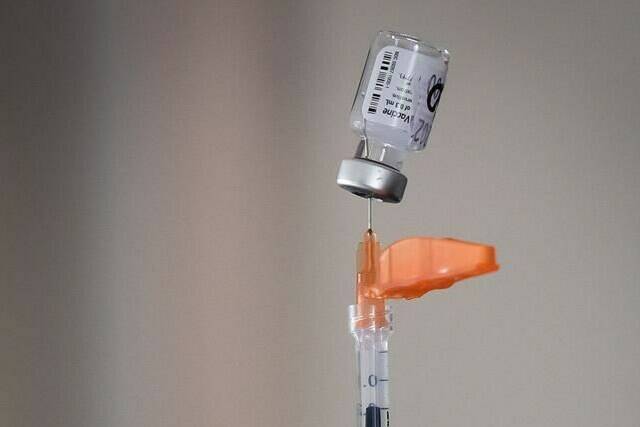The National Advisory Committee on Immunization has urged kids aged five to 11 to get their two doses of an mRNA COVID-19 shot, and also recommends a third dose for immunocompromised kids.
When child-sized doses of Pfizer-BioNTech’s COVID-19 vaccine were approved for kids in November, NACI decreed that kids may be offered the shot.
At the time, NACI said it would strengthen the language when a bit of time passed and more data on the safety and effectiveness of the vaccine became available.
The committee now has what it needs to insist that kids aged five to 11 should be offered a full course of the vaccine to protect against COVID-19, with eight weeks between shots.
The new advice comes as public health officials warn of relatively low vaccination rates among that young age group.
According to the Public Health Agency of Canada, only about 51 per cent of kids aged five to 11 have received at least one dose of a COVID-19 vaccine as of Jan. 15.
“We know that compared to older age groups, school-aged children continue to be at lower risk of experiencing severe outcomes from COVID-19; however, due to the sheer number of children infected with the Omicron variant as it continues to spread through Canada, hospitalizations are increasing in children,” said NACI chair Dr. Shelley Deeks in a release Tuesday.
The advisory group also suggests that immunocompromised children be offered a third dose, since evidence suggests that moderate to severely immunocompromised people may have a reduced immune response to the vaccine.
While there is no data on the safety or effectiveness of a third dose for children, NACI says studies have shown a better immune response in immunocompromised adults who get a third shot.
For that group, NACI recommends a four to eight-week interval between doses, but said a longer interval will likely lead to longer-lasting protection.
“If a longer interval is being considered, risk factors for exposure to the virus, including local epidemiology, and the risk of severe outcomes should be taken into account,” NACI said in its latest recommendation.
The committee warned even after a third dose, immunocompromised kids may still have reduced protection against the virus.
Real-world data from the United States suggests the vaccine is well tolerated in children, NACI said, and only very rare cases of heart muscle inflammation, or myocarditis, have been reported.
—Laura Osman, The Canadian Press
RELATED: Kids’ vaccine rate still low despite rampant spread of Omicron variant

